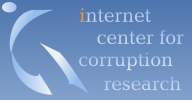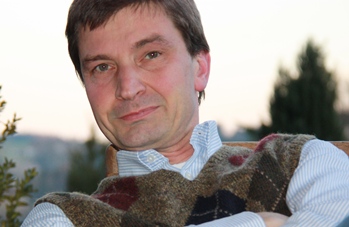
| Home → Lecture and Workshops → 2017 Passau |  |
|
|
The 2017 Economics of Corruption will focus on experimental and behavioral approaches towards corruption and good governance.
Recent years have seen growing skepticism towards control and compliance and the associated administrative burden. Novel methods of anticorruption focus on detecting the intrinsic rather than the extrinsic drivers that might motivate ethical government. Participants learn about this experimental and behavioral research by help of lectures, games, simulations, presentations and case studies. They are confronted with detailed methods on the limits to discretion, contract penalties, compliance systems, debarment, intermediaries, procurement, leniency and corporate liability. They are guided towards developing appropriate designs and work in groups to implement their own experiments. PhD-students are invited to present their research (15 min. presentation + 5 min. discussion). There are no tuition fees. The course is directed towards PhD and Master-students in the social sciences (economics, business administration, psychology, political science, law, sociology) who apply experimental methods in their respective fields and would like to exchange ideas across disciplinary boundaries. |
Date: October 8-15, 2017
Please find the program here . The schedule of presentations by the various PhD-students will be made available here.
Guest presentations complement the program:
Lucio Picci, Professor of Economics, University of Bologna: "Measuring Cross-Border Corruption"
Roel van Veldhuizen, Postdoc at the WZB Berlin Social Science Center: "Bribery: the Behavioral Drivers of Distorted Decisions."
Apart from these guest presentations the event consists of lectures, case studies, group discussion and games. The course is restricted to successful applicants (see information below).
For registration please send an email to our supporting staff . Master students from Passau must also register by email, turning in their name and major.Venue: University of Passau, Germany
Requirements: PhD-students and advanced scholars are invited to present their research. While studies from the field and the laboratory are most welcome, we also accept research on survey work and applied theory.
Prospective participants must apply by completing the application form. Please send your application to our supporting staff.
Applications will be evaluated on the basis of the academic background, motivation and, if submitted, the quality of research.
While participation is free of charge, we do not provide funding for travel or lodging. Course material will be made available online. 30 EUR will be collected to cover expenses for two social events and the games.
Exam: A final exam is offered on October 20, 2017. Two tutorials will be offered in advance to the exam. Master-Students receive 5 ECTS credit points, based on a memo that describes the group's research findings (30%) and the exam (70%).
Accommodation: The City of Passau provides all ranges of accommodation. A list of selected hotels including prices and contact information is available here (Excel-File). You may also go the webpages of the Passau Tourist Information. Participants are required to arrange accommodation on their own.
|
- Lambsdorff, J. Graf (2007) The New Institutional Economics of Corruption and Reform: Theory, Evidence and Policy. Cambridge University Press
- Lambsdorff, J. Graf (2009), The Organization of Anticorruption - Getting Incentives Right. In: Corruption, Global Security, and World Order, ed. by R. Rotberg, (The Brookings Institution Press: Washington, D.C., 2009): 389-415.
- Serra, D. and L. Wantchekon (2012) New Advances in Experimental Research on Corruption, Research in Experimental Economics volume 15, Emerald Group Publishing.
- Lambsdorff, J. Graf (2015), Preventing Corruption by Promoting Trust – Insights from Behavioral Science. University of Passau, Version: Diskussionsbeitrag Nr. V - 69 - 15


